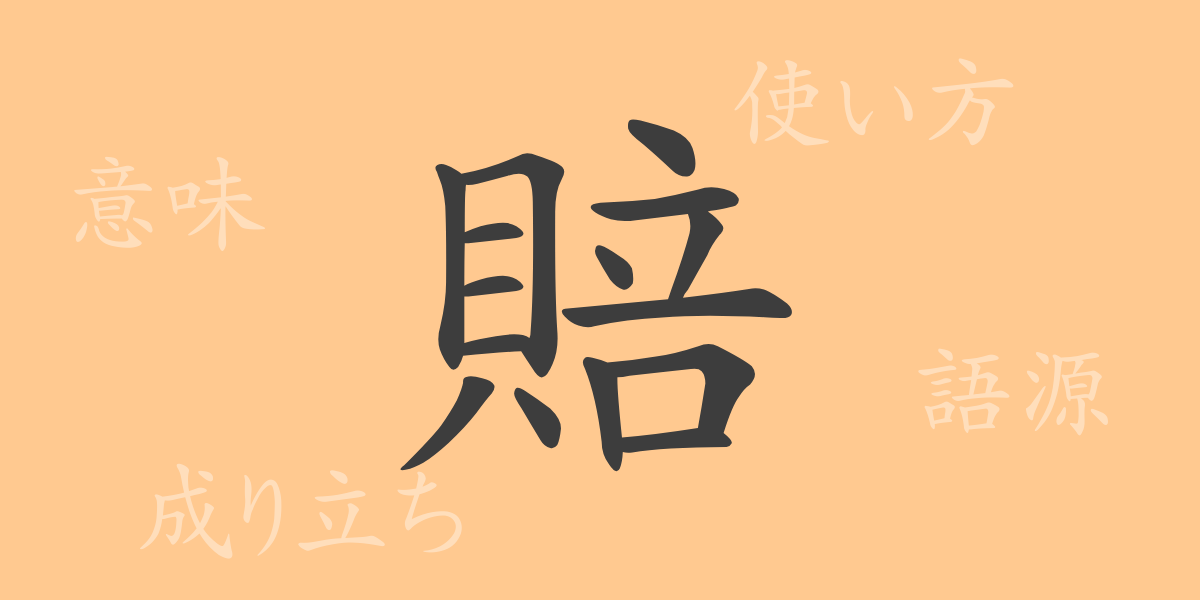The richness of Japanese culture is often conveyed through its complex writing system. Kanji, with its profound meanings and historical significance, is indispensable for understanding Japanese culture and language. This article focuses on the commonly used kanji ‘賠’ (バイ[bai]), exploring its origins, meanings, usage, and the common phrases it appears in, thereby deepening our appreciation of the depth of kanji.
Origins of 賠 (bai)
The kanji ‘賠’ combines the radical for shell ‘貝’ (かいへん[kaihen]), which historically signifies money, with ‘咅’ (ほう[hō]), symbolizing mutual compensation. Originally used in ancient China, 賠 depicted the act of paying with shells to settle damages, evolving to represent concepts of compensation and restitution over time.
Meanings and Usage of 賠
‘賠’ primarily denotes the act of compensating or indemnifying for losses or damages. It is frequently used in legal and business contexts to describe acts of compensation or indemnity, such as in ‘損害賠償’ (そんがいばいしょう[Songai Baishō], meaning damage compensation) and ‘賠償金’ (ばいしょうきん[Baishōkin], meaning compensation money), reflecting the responsibilities and obligations associated with financial restitution.
Reading, Stroke Count, and Radical of 賠
The kanji ‘賠’ is integral to Japanese writing:
- Reading: On-reading is ‘バイ’ (バイ[bai]), with no kun-reading.
- Stroke count: Comprises 15 strokes.
- Radical: The radical is ‘貝’ (かいへん[kaihen]), related to money and value.
Phrases and Proverbs Including 賠
‘賠’ is used in various idiomatic expressions and legal terms that reflect its importance in Japanese language and law:
- 損害賠償 (そんがいばいしょう[Songai Baishō]): Compensation for damages.
- 賠償金 (ばいしょうきん[Baishōkin]): Monetary compensation.
- 賠償責任 (ばいしょうせきにん[Baishō Sekinin]): Liability for compensation.
Conclusion on 賠
The kanji ‘賠’ signifies more than just the financial aspect of compensation—it embodies the profound responsibility and obligation inherent in the act of restitution. As a common kanji used in everyday life, 賠 connects deeply with our social duties and the legal landscape, reflecting the power and responsibility of words in Japanese culture.

























